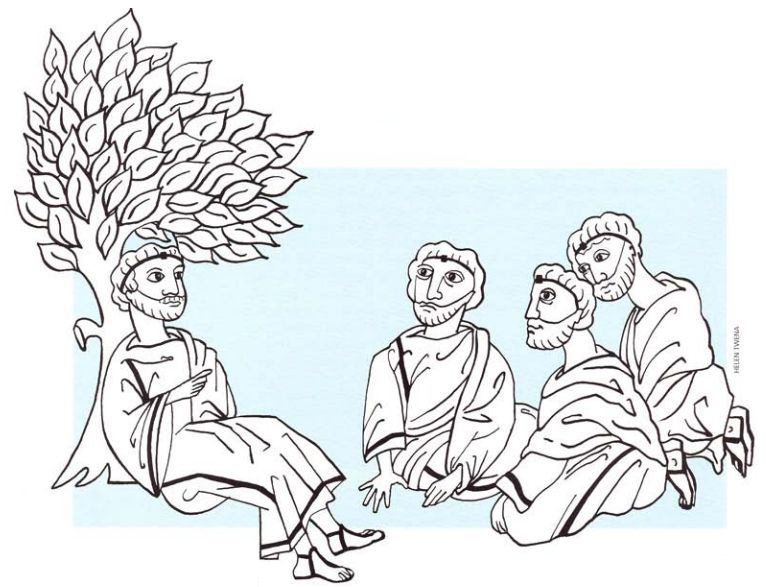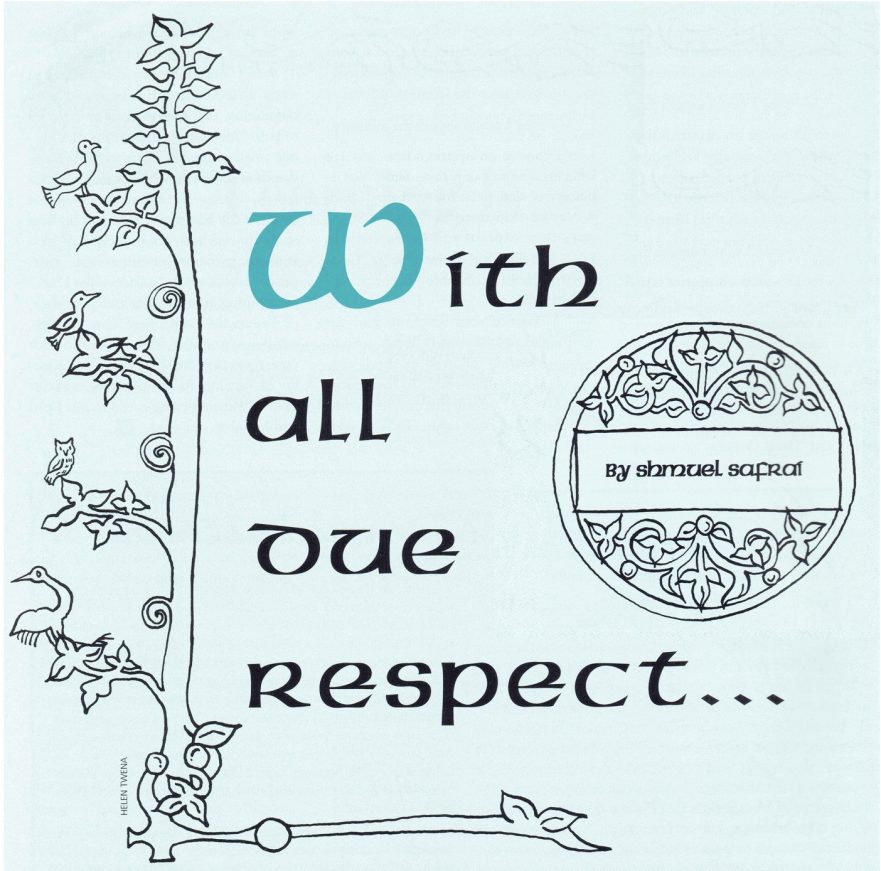The teacher-disciple relationship stood at the forefront of rabbinic culture. Like two adjoining links in a strong chain, a teacher passed on to his students what he had learned from his teacher. To ensure, however, that this body of learning, otherwise known as Oral Torah, never stagnated, a teacher also passed on his own innovations.

Sheltered from the relentless Mideastern sun by the branches of a tree, a sage sits with his students. In the quiet shade of vineyard watchtowers or under the roofed colonnades of bustling markets, sages taught their students in open-air “classrooms.” The teacher and his students are wearing tefillin, both on their heads and upper left arms, although the arm tefillin, covered by the folds of their talliths (outer robes), are not visible. (Note that the Scripture capsules of the head tefillin are extremely small, no wider than a small postage stamp.) Ritual tassels hang freely from the talliths’ corners. Typical of first-century Jewish preferences, their hair is short, and their beards are trimmed. Illustration: Helen Twena.
Sometimes a teacher’s innovations departed from or even contradicted that which his teacher had taught. Rabbinic culture permitted such moments, but they were governed by a strong sense of etiquette. An innovator always showed the utmost respect for his teacher. He could not correct his teacher in public on a mistaken point due to a lapse in his teacher’s memory (Babylonian Talmud, Menahot 64b). Nor could he teach near the same place where, at the same time, his teacher was teaching (Leviticus Rabbah 20:6-7). He could, however, cite his teacher’s opinion on some point of halachic or aggadic exegesis, and mention his own opinion after it.
Paid Content
Premium Members and Friends of JP must be logged in to access this content: Login
If you do not have a paid subscription, please consider registering as a Premium Member starting at $10/month (paid monthly) or only $5/month (paid annually): Register
One Time Purchase Rather Than Membership
Rather than purchasing a membership subscription, you may purchase access to this single page for $1.99 USD. To purchase access we strongly encourage users to first register for a free account with JP (Register), which will make the process of accessing your purchase much simpler. Once you have registered you may login and purchase access to this page at this link:



![Shmuel Safrai [1919-2003]](https://www.jerusalemperspective.com/wp-content/uploads/userphoto/20.jpg)




























































































